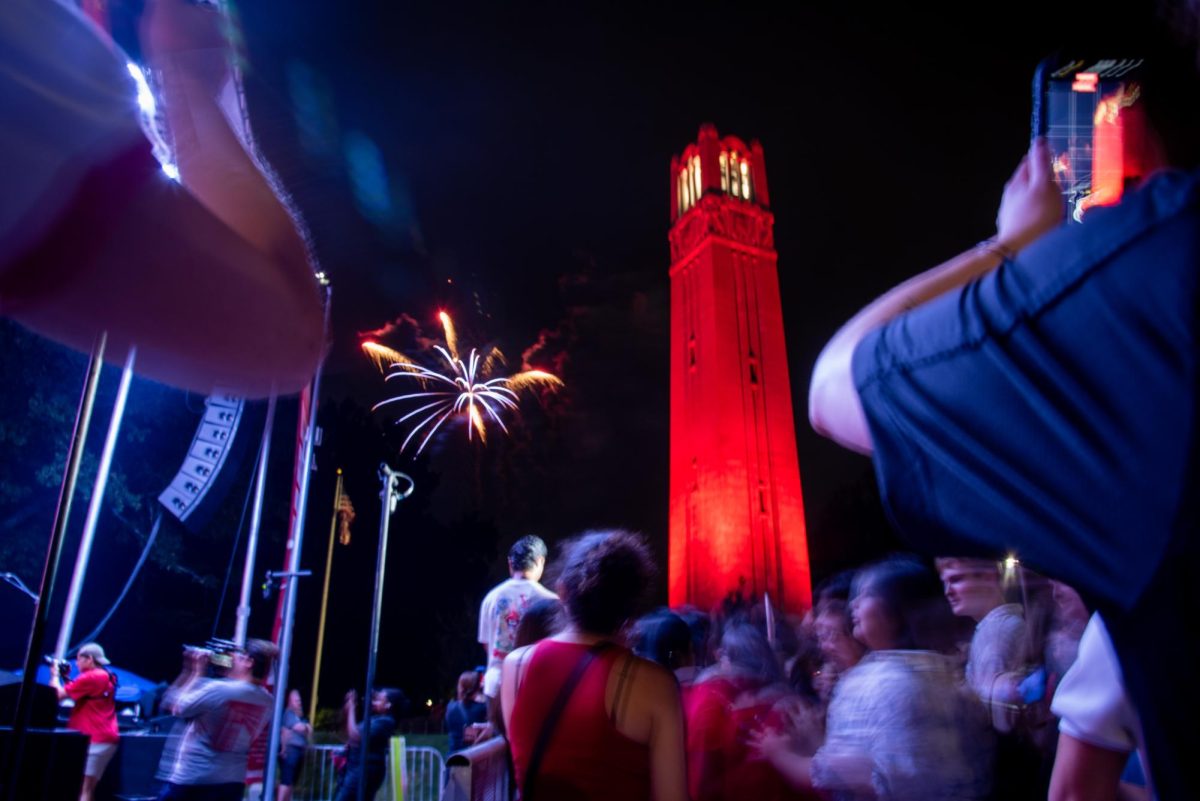Intense partisanship can result in government shutdowns and filibusters, but to one world-renowned journalist the problem doesn’t end there. It leads to a decreased sense of citizenship as well.
Joe Klein, a Time magazine political columnist who has covered 10 presidential elections, spoke to students and other University affiliates Monday as a part of this year’s Harrelson Lecture Series. The harrelson lecture series has been active for almost fifty years, and Klein, the distinguished speaker for 2014, drew a crowd of more than 100 people.
The topic of Klein’s lecture was “Politics Lost: The Search for Sanity in an Era of Political Consultants, Talk Radio, Cable News and the Blogosphere.” One of the topics he covered was citizenship and how Americans are losing grasp of what that idea truly means.
He described how the United States is becoming more divided as a nation and how the citizens can resolve this issue. One of these dividing issues, according to Klein, is the polarization of politics.
“There are lots of moderates among the people, but no moderates among Congress,” Klein said.
He spoke about how this representation is a huge factor for why the United States has lost some of its “connectedness” as a nation.
Klein also found issue with the media and said “television has ruined everything.”
“Television began influencing politics in 1960, when there were a series of debates between Nixon and Kennedy that were televised,” Klein said. “People who listened on the radio thought Nixon won, and people who watched on their televisions believed that Kennedy had won.”
This was the first real example of how images in the media have impacted politics because people interpreted the candidates’ messages differently, according to Klein.
Klein spoke about how the journalistic world has evolved since he was a child. He said the proper perspective for a journalist was formerly skepticism but has now turned into cynicism.
“Cynicism is what passes as insight for the current media,” Klein said. “There has been laziness among journalists, and the vast number of media outlets available to the public has caused them to have drastically different views.”
He also reiterated that this has been the golden age of marketing, which is a fundamentally “un-American” principal.
“America was the first place that what you believed was more important than who you were,” Klein said. “The things that we had in common are more important than the things that divide us. The principal of marketing is the opposite. The media has divided us as a people, and we have lost the habits of citizenship.”
Klein said he saw the restoration of citizenship after the 9/11 terrorist attacks.
“After 9/11, something changed among the people,” Klein said. “People came together and people have become closer to each other, cared about each other and became citizens again.”
Klein said he became extremely interested with the military and what they were doing. He spent a lot of time overseas in the war zones and became close with a number of soldiers, Klein said.
“This generation of troops is coming back with problems, but also skills that we need to lead us and show us how to be citizens again,” Klein said. “Ninety percent of returning troops said they wanted to continue serving in their communities.”
Klein stated that it was really important that citizens don’t just thank soldiers, but understand that “we still need them.”
Greta Humphry is a first-year Fashion Textile Management student who attended the lecture as a part of the University Scholars Program.
“I really appreciate how Klein wasn’t afraid to establish his own stance on certain topics and share them with the audience,” Humphry said. “Most times, the speaker tries to remain objective.



